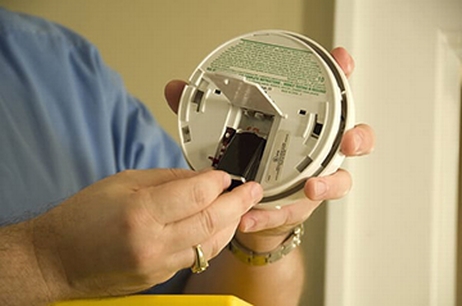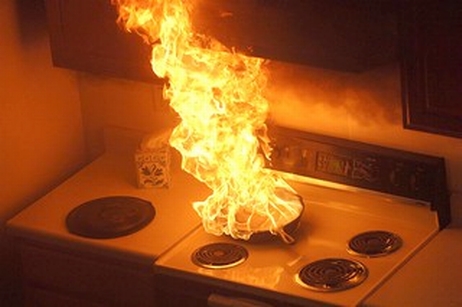Find It Now
Fire Safety
The ultimate mission of every fire department is to save lives and protect property. Although we are ready to respond to emergencies as they arise, it's perhaps more important to us to prevent them from happening in the first place. At the Medina Fire Department, we seek to do that through a robust public safety education initiative. Here you will find useful information to help keep you and your family safe.
"The MFD 3": These three safety tips are what we consider to be among the most important things you can do to protect yourself in your home. They are simple, but unfortunately easily overlooked things that statistics show have a remarkable impact on both preventing fires and surviving them if they do occur.
1) Have Working Smoke Detectors: According to the National Fire Protection Association (NFPA), 3 out of 5 deaths in residential structure fires occurred in homes without smoke detectors or with smoke detectors that failed to function properly due to age or dead batteries. The best option is to have smoke detectors that are hardwired to the home's power supply and are interconnected so that if one sounds, they all sound throughout the house. These units still have battery backups that need to be replaced every 6 months, so they will continue to work in the event of a power outage. The detector itself should be replaced every 10 years to ensure they will function properly. If hardwired units aren't present in your home, as is the case in many older homes, it is recommended to install battery only units. They should be installed on each floor, one in every bedroom, and one in the hallway outside sleeping areas. In this case, you can opt for models with a 10-year battery that does not need to be changed until the unit has reached the end of its life. We recommend you test smoke detectors monthly and change the batteries in conjunction with daylight savings time, so when you adjust your clocks you remember to change the batteries. We also recommend you write the date the detectors are installed on the back of the unit, so you know when it is time to replace the unit itself. Ultimately, statistics show that residents are 54% more likely to survive a fire if they are alerted to it sooner by properly functioning smoke detectors.

2) "Close before you doze": Sleeping with your bedroom doors closed at night makes a huge difference on your chances for survival in the event of a house fire. UL Firefighter Safety Research Institute conducted a study that determined that only 29% of people always sleep with their doors closed. Shutting the door before you go to sleep is one of the most important things you can do to prevent the spread of fire and harmful smoke, and it makes a tremendous difference on your chances of survival in the room behind that closed door. Check out this video to see just how dramatic the difference a closed door can make:
3) Practice Fire Safety in the Kitchen: According to data compiled by the NFPA, unattended cooking is the number one cause of fires in the home. Never leave food unattended while utilizing a heat source and set a timer to keep track of time when cooking for longer periods. Keep flammable items such as towels and recipe books away from burners. In the event food does catch on fire, the first thing you should do is turn the heat off. If it's safe to do so, attempt to smother the flames by putting a lid or baking sheet on the pan or by dumping a box of baking soda on it. If the food is in the oven, keep the oven door closed. Always ensure that you have a residential fire extinguisher easily accessible to use if turning off the appliance alone doesn't put out the fire. Never put water on it, as doing so can cause burning grease and oils to spread and dumping water on hot pans can cause burns as it splashes or turns to steam. If you aren't able to put out the fire, or if you aren't sure if its completely out, get your family out of the house immediately, shut all doors behind you as you exit to help contain the fire, and call 911.

